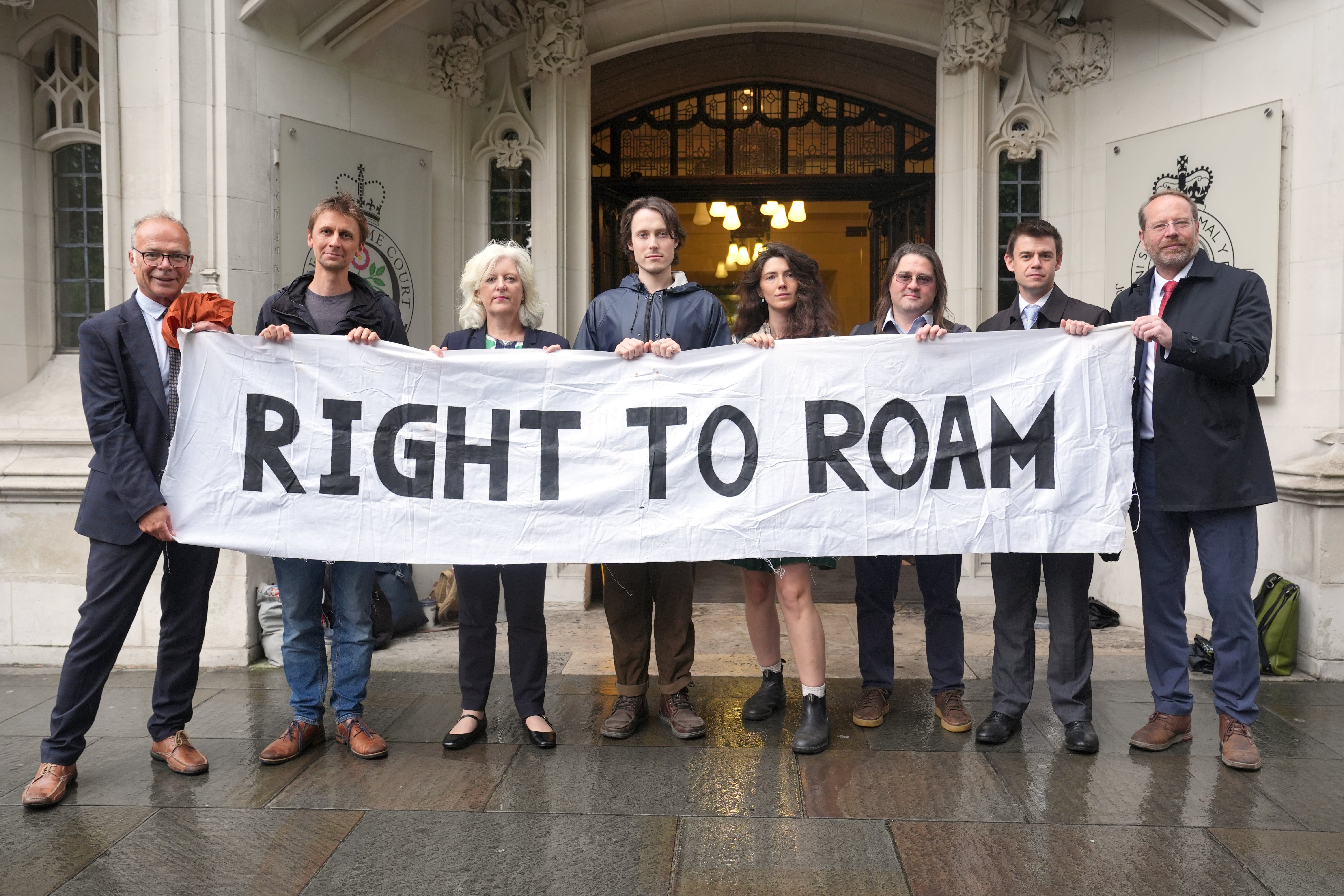
A wealthy landowning couple have lost a Supreme Court case to restrict wild camping on Dartmoor, in the latest twist in the dispute over public access to the commons.
A bitter row began when Alexander and Diana Darwall argued that some campers were causing problems for livestock and the environment.
The couple, who keep cattle on a 3,450-acre estate on the southern part of Dartmoor, won a High Court case two years ago to stop wild camping without landowner consent on the national park in Devon.
But that ruling was overturned at the Court of Appeal seven months later, and on Wednesday the Darwalls lost their challenge against it at the Supreme Court.
Mr and Mrs Darwall said they were disappointed by the ruling. South Devon Lib Dem MP Caroline Voaden said she was “absolutely thrilled”, while The Stars are for Everyone campaign group said the ruling was a “relief”.
The case all hinged on the interpretation of the Dartmoor Commons Act 1985, which states “the public shall have the right of access to the commons on foot and on horseback for the purpose of open-air recreation”.

Lawyers for Mr and Mrs Darwall said the wording of the act implied only walking and horse riding were allowed. They even argued that having a picnic without landowner permission could constitute trespassing.
But in their Supreme Court judgment, Philip Sales and Ben Stephens said the concept of “open-air recreation” was wide.
“The word ‘recreation’ is used here without qualification as to the form which it should take,” they ruled. “It is not confined to recreation taken by means of walking or riding.”
In a statement, Alexander and Diana Darwall said: “We are disappointed by the Supreme Court’s judgment. Our aim from the outset was to protect and preserve Dartmoor, its flora and fauna. Landowners and farmers have always played a vital part in the conservation of Dartmoor. Hollowing out the role of landowners and farmers will not improve the vitality of the Dartmoor commons.”
The high-profile case is seen as a test case for countryside access, and campaigners are hopeful it will now mean greater access rights for walkers and campers across the country. While wild camping is allowed in large parts of Scotland, Dartmoor is the only place in England it is allowed without requiring permission from a landowner.
Caroline Voaden told The Independent: “I’m absolutely thrilled with this ruling. It is a vindication of something we’ve all known for a long time.
“Now this is over, I hope we can begin work to extend our right to wild camp beyond Dartmoor. In opposition, Labour spoke about extending the right to wild camp across the UK. I hope they will put those words into action and expand access rights for walkers and campers across the country.”

Dartmoor, protected by national park status since 1951, covers a 368-square-mile (954 square kilometres) area which features areas of unenclosed, privately owned moorland where locals can keep livestock.
Campaign groups The Stars are for Everyone and Right to Roam called on the government for stronger legislation to protect the public’s rights to nature.
Lewis Winks, from The Stars are for Everyone, said: “The verdict is a relief and huge win for the thousands of people who have campaigned so hard to retain the right to wild camp on Dartmoor.
“The fact that one wealthy landowner was able to temporarily remove a right that belonged to everyone demonstrates how England’s system of access is utterly broken.”
In written submissions to the Supreme Court hearing, Timothy Morshead KC, for the Darwalls, said the couple were “not motivated by a desire to stop camping on Dartmoor”, but by a desire to protect the moor as stewards of the land.
But in the judgment following Wednesday’s ruling, Lords Sales and Stephens said powers held by the Dartmoor National Park Authority allowed the body to prevent “problematic camping” through bylaws and notices.
They concluded: “The legislation puts in place the means for public regulation of use of the commons which is in practice likely to be more effective in protecting the land than attempts by private persons to challenge such use through themselves having to confront people on their land and then bring a claim in private law.”
Legacy body ‘lacks powers of a public inquiry to examine Sean Brown murder’
Benn ‘searching’ for legal solution to prevent payouts to Troubles internees
Legacy body focused on and capable of uncovering ‘unvarnished truth’ – Morgan
After crossing the border for better schools, some parents are pulling their kids and leaving the US
Kneecap member charged with terrorism offence over flag displayed at London gig
Court system in crisis as ‘jaw-dropping’ delays see first trials listed for 2029







